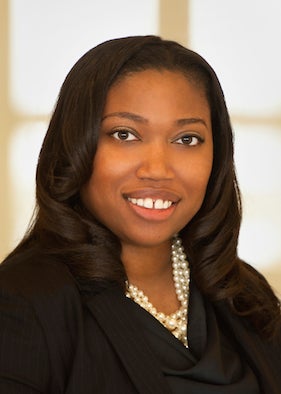
Yes, April happens to be Financial Literacy Month, but for most of us, every month should be Financial Literacy month––that is, if we want to achieve financial freedom and accumulate wealth. The good news is that it’s never too early or too late to make a positive difference regarding our relationship to money. And there’s no one more qualified to talk about this, specifically as it relates to Black people and wealth, then Melinda Hightower. She heads the new Multicultural Investors Strategic Client Segment at UBS, the world’s leading wealth manager. She’s a tax lawyer and financial analyst by trade, and she’s captaining this UBS division, which has put a microscope on the practices and psychology behind high-net worth minority groups.
The research shows that when it comes to building wealth, we, African Americans, are making some solid, smart moves. But, like anything, there’s room for improvement. We asked Ms. Hightower if she could wave a magic wand and grant black people five practices that would allow us to thrive financially, what would they be? Check out her responses below. This is where the everyday magic begins.
Have More Than One Stream of Income
Whether it’s through entrepreneurship, side hustles, investing in the stock market, real estate, crypto currency…the truth is that most wealthy Blacks are getting paid from multiple resources. Multiple revenue streams can provide more freedom to take other investment risks, as well as put one in a more comfortable position of not being beholden to one job or one paycheck. “Entrepreneurship is a proven path to wealth, and you don’t have to have unicorn IPO success for it to make a difference,” says Hightower.

A second stream of income, throughout your life, can bolster retirement savings, provide relief for financial emergencies, pad your vacation or college funds, and so on. Wealthy blacks are doing well in the entrepreneurship category, but we could use some improvement when it comes to investing in the stock market. “We are savers, but not necessarily investors,” says Hightower, who reminds us that “wealth is generally created by those who take risks, and calculated risks are a part of wealth creation.”
The UBS study shows that 79% of Black women provide financial support to a range of folks outside of their households, including adult children, parents, grandparents, and so on. Our dollars are expected to stretch much further than those of the mainstream, so it makes sense that we might be hesitant to invest in the stock market, when we need liquid assets at the ready. “Black women have also embraced real estate as a path to wealth; six in 10 we surveyed invest in real estate, income properties and vacation rentals. Many who invest in real estate believe the stock market to be a riskier option,” says Hightower.
The truth is however, that stock market payoffs are often worth it. The greater the risk, the higher for potential profit (or loss). “Despite the volatility of the stock market, “if you invested in even the most conservative of stocks, from let’s say the S&P 500, in the last ten years, your portfolios could be up by 300%,” shares Hightower. “Steering clear of such calculated risks could limit your ability to build wealth.” Such returns will not happen from a savings account, or a time share, so it would behoove us to start such investing. Hightower adds that “the Black women we surveyed have been among the early adopters of digital assets with at least 1 in 2 investing in digital currency such as crypto. As with any investment, it’s important to think about your bigger picture and the role it plays in your portfolio. Ultimately, diversification is key. Aim to strategically allocate. Your money among a range of assets with different risk and return characteristics.”

Invest Early (but know that it’s never too late to start)
Every dollar you earn has a job, so if you are not engaged with your finances, your money is most likely working for others and not for you. “No matter your age, you should invest, because inflation means cash is not king. Your dollar buys less and less each year, whether it’s gas, groceries, or travel,” says Hightower. While it’s never too late to start investing, your strategy may change depending on your age and circumstances. Someone closer to retirement age may have a less risky portfolio then someone who is younger with more time to recover from a market downturn. If you are nearing retirement, take advantage of an employer sponsored plan such as a 401(k) to expand your retirement savings. Start investing as soon as you can because one of the biggest determinants of success with your financial portfolio, is time, more so than anything else.
Despite the most recent downturns we’ve experienced in the U.S. (2000 dot-com bubble burst, 2008 housing crises crash and the most recent Pandemic stock market vulnerabilities) time still heals most, if not all, stock market wounds. You say you have no money for saving or for the stock market? Think again: you can start investing today with an App like Acorns (@acorns), which takes the change from your purchases (rounds to the next dollar) and invests that money for you. You can also put aside money from upcycling or selling items you no longer use. Apps that give you cash-back for shopping (@cashapp) or sites that pay you for shopping, like Rakuten (Rakuten.com) can also get you started in growing funds for future stock investments.
Say Hello to a “Wealth Cabinet”
You may know something about money, but you don’t know everything. Having a variety of financial experts around you gives you peace of mind and access to support in a crisis. Depending on your situation, you could need access to an accountant, an attorney, or a tax lawyer. Start with a financial planner. They can function as your team captain, they can help you determine your short-, mid- and long-term financial priorities as well as plan to reach those goals. They can also identify when you might need more expertise in your wealth cabinet, such as an attorney with experience in estate planning, trusts or powers of attorney. Form these relationships now, before you need them. Those relationships matter when push comes to shove.
Where to start to find these folks? Start with your local bank, in person or online. Online banking and national credit unions also grant financial planning assistance. There are also several online forums where you can find referrals and solid financial information. Check out Stocks & Stilettos (Black founder and operator) @stocksandstilettos, where all levels of investors are welcome to learn how to thrive in the market.
Plan for Success
Get your documentation in order. Start by making sure your beneficiaries are up to date with your banking, savings, investing, life insurance, all your financial accounts. Have you updated these items since a marriage, divorce, death of a parent, birth of a child or grandchild? Create a will (many employment programs can help you with that for no costs, and they’re plenty online as well). Know the documentation that you will need around your estate (a will, trust, healthcare power of attorney), again, the folks from your wealth cabinet can help. Laws vary from state to state but most states do have publications available to put together basic estate planning. Consider confidential access or waivers that may need to be signed for people to have access to your health and financial wishes.
“I would want to have a professional involved, to make sure that everything is up to date and in compliance with any state guidelines,” says Hightower. Imagine how difficult it might be for someone to back into your life and figure out what you have (bank accounts, investments, life insurance, property deeds, etc..), where it is (wills, trusts) and how to access everything (designated executors, powers of attorney, healthcare proxies, passcodes). You want to appoint the right agent to make this process seamless.

Have Those “Necessary Conversations” Now
Make sure you’ve communicated the whereabouts of your will to the necessary parties. Communicate your decisions. Let your executors know, ahead of time, that they will have this responsibility and make sure they want this responsibility. Don’t be afraid to start talking about your money and your future. “Money is just a tool. Prioritize around your values so that your money is in service to you,” chimes Hightower. If you’re a parent, research shows that “financial habits can be formed as early as five.
Even if you are not talking to your kids, they are observing how you deal with money. Help your kids to see money as a tool and not an end result,” Hightower stresses. “Get them comfortable with investing early and having a bank account early,” she continues. Investing can start with their interests. Do they like Frozen? How about investing in Disney? Are they gamers? Game Stock did pay off (for a second) not too long ago. These are just examples but if you and your children want to learn together, there’s a great app, Goalsetter, created by a Black woman, Tanya Van Court, for the whole family that informs about wealth and concepts around money.
Pamela Edwards Christiani (@pecstyle) is a former fashion & beauty director of ESSENCE.